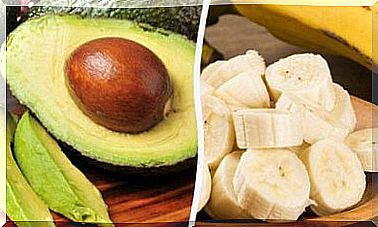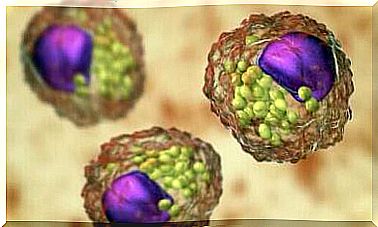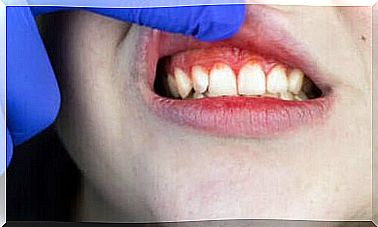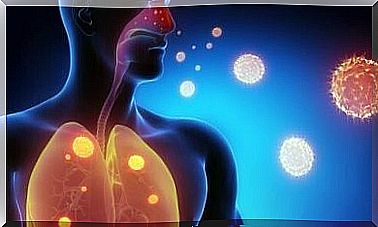Food Additives – Allergies, Symptoms And Treatments

Allergy to food additives is a problem that often goes unnoticed because people can confuse it with food intolerance. These are different phenomena, although they both have a common origin and symptoms that are reminiscent of each other.
When it comes to food intolerance, the digestive system becomes sensitive because the person has trouble digesting a food or an additive properly. With regard to food additives, and to food in general, the immune system reacts disproportionately to it. This can, in fact, be life threatening.
The population is generally more aware of food intolerance or food allergy than of allergy to food additives. This is because the latter is present in most processed foods and those who consume them ignore their harmful effect.
Food additives
Food additives are substances that are added to food during processing. They customize them in terms of taste, texture, color, aroma or durability, among other things.
Manufacturers add these substances with the approval of the Danish Veterinary and Food Administration or other health authorities and they usually mention them on the food label.
Allergy to food additives occurs when the body identifies them as potentially harmful. Thus, it creates an immune response to attack the substance with symptoms that can range from mild to extremely serious.
Symptoms of allergy to food additives

Allergies to food additives usually have symptoms in the respiratory system or on the skin. In more serious cases, it leads to a serious reaction known as anaphylaxis.
The symptoms of allergy to food additives can vary. However, the most common are those that affect the respiratory tract, especially asthma and rhinitis, as well as cutaneous symptoms. They occur primarily as hives and other forms of eczema.
As mentioned above, the symptoms can also develop to generate a serious reaction called anaphylaxis, which is life threatening. This happens quickly and violently and it is due to high release of histamine and other substances. In addition, it blocks the airways and can lead to death.
At present, researchers believe that between 5 and 10% of cases of chronic hives are due to allergies to food additives. However, the number may be higher.
In fact, at present, there are several limitations to the diagnosis of this problem. But in general, intolerance to certain foods can be a sign that allergies should be checked.
The potential risk of some additives
All additives can cause side effects, but some of them have a higher risk of it. They are:
- Antioxidants. Doctors report cases of hives and atopic dermatitis due to poor digestion of foods with industrial antioxidants. In a few cases, it produces bronchospasm.
- Sulfur dioxide and sulphites. The latter can cause respiratory symptoms, such as rhinitis or worsening in asthmatics. They could also lead to dermatitis, hives and digestive problems.
- Nitrates and nitrites. These can aggravate atopic dermatitis and lead to cases of serious allergic reactions.
- Benzoic acid and benzoates. These are the most common additives in allergic reactions. They aggravate atopic dermatitis and asthma, hives, headaches, migraines, difficulty concentrating and hyperactivity.
- Methylcellulose. This could lead to unwanted reactions in the gastrointestinal tract.
- Jelly E441. It is a thickener that can cause serious allergic reactions.
- Guar gum. It can cause gastrointestinal problems, aggravate atopic dermatitis and cause hives.
- Monosodium glutamate. This can cause serious allergic reactions.
- Dyes. They can cause mild, moderate or, in rare cases, severe allergic reactions.
Treatments

To control allergies to additives, avoid the processed foods that contain them. Instead, one should choose fresh, natural foods that are free of pesticides.
There is no effective treatment for these types of allergies other than removing them from his diet. However, this can be difficult as there are many foods with additives on the market.
This is made even more difficult by the fact that additives are not always mentioned by name, but by a reference number.
It is important to examine the name of the component that corresponds to a number or code mentioned on a food label. The best measure then is to avoid pre-packaged foods, especially those of industrial origin.
The less industrially processed a food is, the fewer additives it contains. The best diet is one where one eats only fresh and natural ingredients.
In addition to this, one should avoid consuming foods where the nutritional information is not clear. We recommend that you simply refrain from trying them in such cases.









